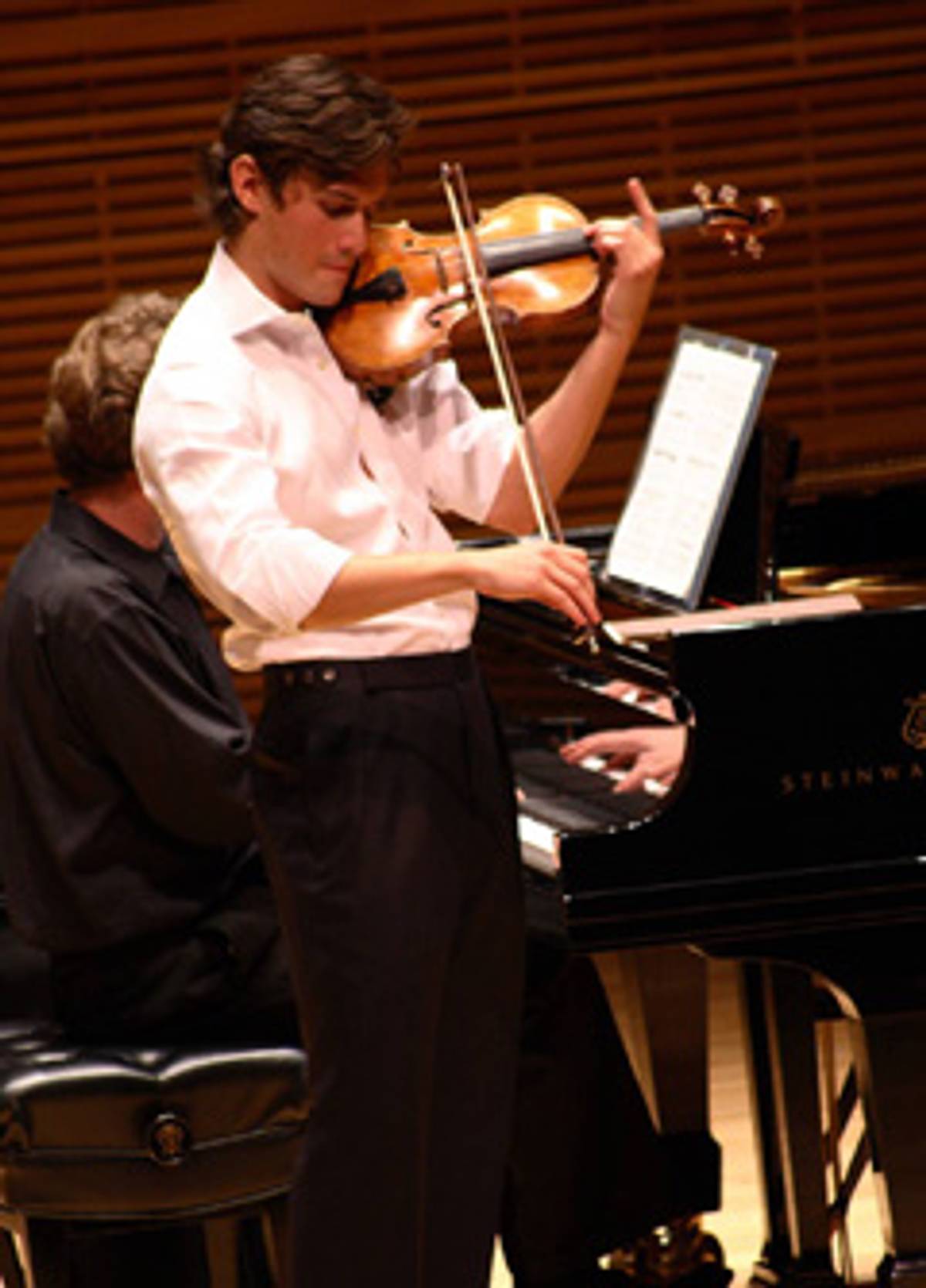I love kibbutzim. There is something heartwarming about the thought of strapping, sunburned Jews picking watermelons, milking sheep, and doing all the other wholesome, agrarian stuff I’ve never done and have no intention of ever doing.
I did once have lunch at a kibbutz, where I was deeply impressed with the plastic bottles of syrup they kept on the tables in the cafeteria so you could make your own cola-flavored drinks. Also, I spent two weeks on a moshav in the West Bank with a bunch of guys from my high school—though, having suffered a grievous injury just a week earlier when Eric Horlick and Gershon Frisch accidentally pushed me through a glass door in Jerusalem (you could tell they were both destined to become doctors by the way they helped wrap my arm in a towel to keep bits of it from falling out), I was unable to help out with the daily cattle-insemination and cherry-picking sessions.
Nevertheless, I was surprised to learn that a kibbutz in northern Israel hosts a highly regarded summer music program for violinists aged 16 to 26. And I wasn’t the only one: the renowned violinist Ida Haendel—child prodigy in her native Poland (she was born in Chelm), studied in Paris with Flesch and Enesco, international solo career, Commander of the Order of the British Empire—was surprised, too. “I have my life, which is the concert stage, and I didn’t know too much about agriculture,” she said.
But she did know the violinist and conductor Shlomo Mintz, the man behind the Keshet Eilon Music Center and Violin Mastercourse. “Shlomo Mintz wrote me a letter and asked me if I would play and give master classes, and I said yes”although I don’t teach and I don’t give master classes,” she said. “It was because of him, because I respect him.” She’s now been teaching there for eight years.
A lot of people respect Mintz—child prodigy in his adopted homeland of Israel (he was born in Moscow), protege of Isaac Stern, principal guest conductor of the Maastricht Symphony and the Zagreb Philharmonic Orchestra—which is probably why the program draws students from far-off places like Switzerland and Indonesia to an agricultural settlement in the western Galilee, just a mile south of the Lebanese border. (A couple of years ago, the students and faculty had to be evacuated because Hezbollah rockets were falling on the kibbutz.)
“If you expect luxury, then you’re not going to get it,” Haendel says of the place, which promotional materials describe as “camp-like.” You will, however, get a three-week workout that includes intensive violin studies, one-on-one sessions with instrument makers, workshops in Turkish folk music and Argentine tango, and archery lessons.
The setting might be unusual, but the formula appears to be working. Now in its 18th year, the music center has been around long enough to draw faculty from its own pool of graduates, many of whom have gone on to successful performing careers. They have an annual concert series; an outreach component that identifies and supports promising young violinists, both Jewish and Arab; and plans for a new campus, with its own dormitories, practice rooms, and auditorium, that will operate year-round.

All this, of course, takes money. Which is why Keshet Eilon held a gala benefit concert at New York City’s Zankel Hall in October. One can only imagine the delicacy required to program a benefit concert for an international violin program hosted by an Israeli kibbutz. Most of the people in attendance—i.e., the donors—are going to be Jewish, so you’re clearly going to want to play up the Israeli/Jewish angle. On the other hand, you wouldn’t want to seem too parochial in your choice of composers and works. Besides, from what I’m told, there have been some decent violin pieces written by non-Jewish composers over the years.
After an introductory video segment featuring the requisite close-up of Jews and Arabs holding hands, the evening’s entertainment consisted mostly of typical fundraiser fare: sentimental favorites like Kreisler’s “Liebesleid”, plenty of fireworks (“too schmaltzy,” said the psychoanalyst sitting next to me after British fiddler Charlie Siem had finished spraying bow rosin all over the front row with a pumped-up rendition of Sarasate’s “Zigeunerweisen”), and some Ernst Bloch (“Nigun”, from Baal Shem) thrown in to satisfy the ethnic vote. The Israeli violinist Semion Gavrikov’s interpretation of Nigun proved two things: first, that no one could milk Jewish folk material like Bloch; second, that talent alone cannot entirely compensate for a black Nehru jacket and a bad haircut.
But why be petty? This was an edifying event held in support of a worthy cause. And given the rather dismal state of the kibbutz movement—many kibbutzim are struggling economically, voluntary socialism has given way to partial privatization, and young people are leaving in droves—perhaps the good people of Keshet Eilon are onto something. Forget collective agriculture; cultural tourism may be the way forward. Instead of gathering eggs or fiddling with irrigation equipment, 21st-century kibbutzniks could teach little Swiss and Indonesian kids how to play the viola da gamba or make video installations.
It might lack the mystique of working the land, but it’s a living.
Alexander Gelfand is a recovering ethnomusicologist, a sometime jazz pianist, and a former West African drummer. His work has appeared in the New York Times, the Chicago Tribune, the Forward, and elsewhere.
Alexander Gelfand is a recovering ethnomusicologist, a sometime jazz pianist, and a former West African drummer. His work has appeared in the New York Times, the Chicago Tribune, the Forward, and elsewhere.